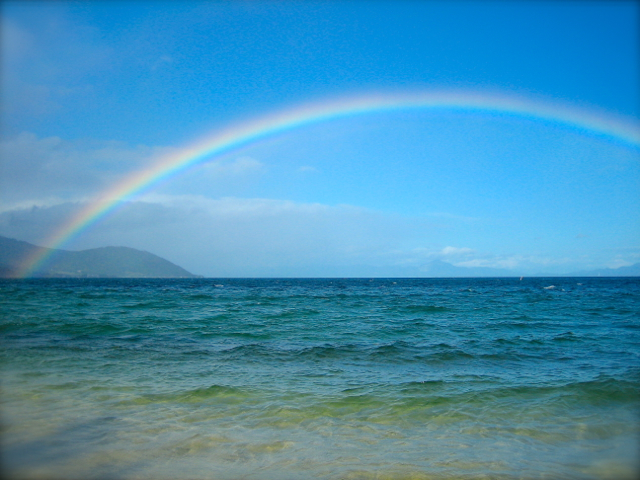The ferry boat offshore
Of Yabase at Lake Biwa –
Can I be the one to
Meet people, even pushed?
Ni(h)o-no umi-ya
Yabase-no oki-no
Watashibune
Oshite-mo hito-ni
A(h)u-mi-naraba-ya
にほの海や
矢橋のおきの
渡し舟
おしても人に
あふみならばや
Note: This poem was gleaned from the Touyou-waka-shû in its Fifth Volume: Love
Songs (藤葉和歌集、5: 恋歌) as the poem made by Dharma Teacher Dogen,
thus interpreted as follows:
The ferry boat offshore
Of Yabase of Lake Biwa –
How much I would like to
Meet the person, even pushing!
Thus, later interpretations and introductions follow this interpretation, taking the
person as the Buddha, Juchin, his teacher, or even the emperor. The last seems as the
case of Tetsuo Otani in his Way of Eihei: Life of Dogen (大谷哲夫, 永平の風:道元の
生涯) for the backup of his propagation of the new teaching (old and authentic, but
not so far witnessed and propagated by other former teachers, but now offered by
him). The author of this book, however, tells that Dogen did not want such a thing
(though plotted by his patron dignitaries). As this author tells the truth of Dogen’s
way, as expressed in many already introduced here, and from the grammar and
syntax, it is better to interpret it as given first above. The last particle ya (や)
connected with the certain declension (izen-kei, the form indicating “the act already
done”) must be the rhetorical question as in the first translation, not the
exclamation as in the second one (according to the grammar and syntax) . Doen was
conscious about his teacher’s admonition of keeping and transmitting the true
supra-mundane Awakened Way or Dharma, not to approach dignitaries in the
secular, mundane world, which is stressed by the above mentioned author of the
book, describing the situation when Dogen received his teachers teaching put into
a book form and moving his monastery from the then capital, Kyoto, to the remote
place in the deep mountains in Echizen, present Fukui, where Eiheiji has been.
Ni(h)o-no umi is the “sea of dip-dappers,” here meaning Lake Biwa (the size seems
like sea, though fresh water, the shape like biwa, vînâ, music instrument).
A(h)u-mi has the double meanings of au-mi (meeting body, 逢う身) and A(h)umi (近
江, the name of the Province where Lake Biwa is located, which was an important
motif and motive to make this poem. cf. A(h)umi-no (u)mi: Sea of A(h)umi:
Lake Biwa).

